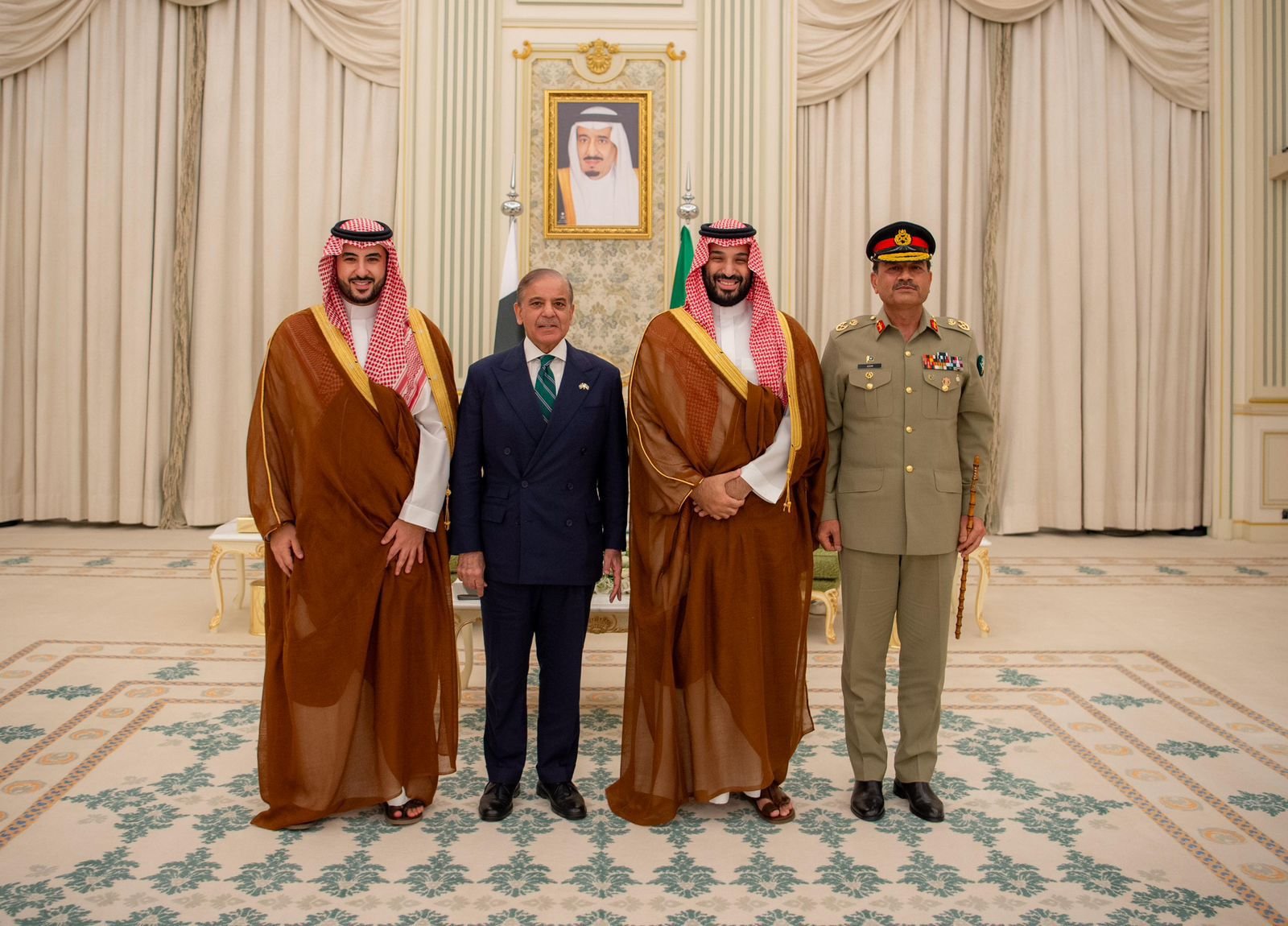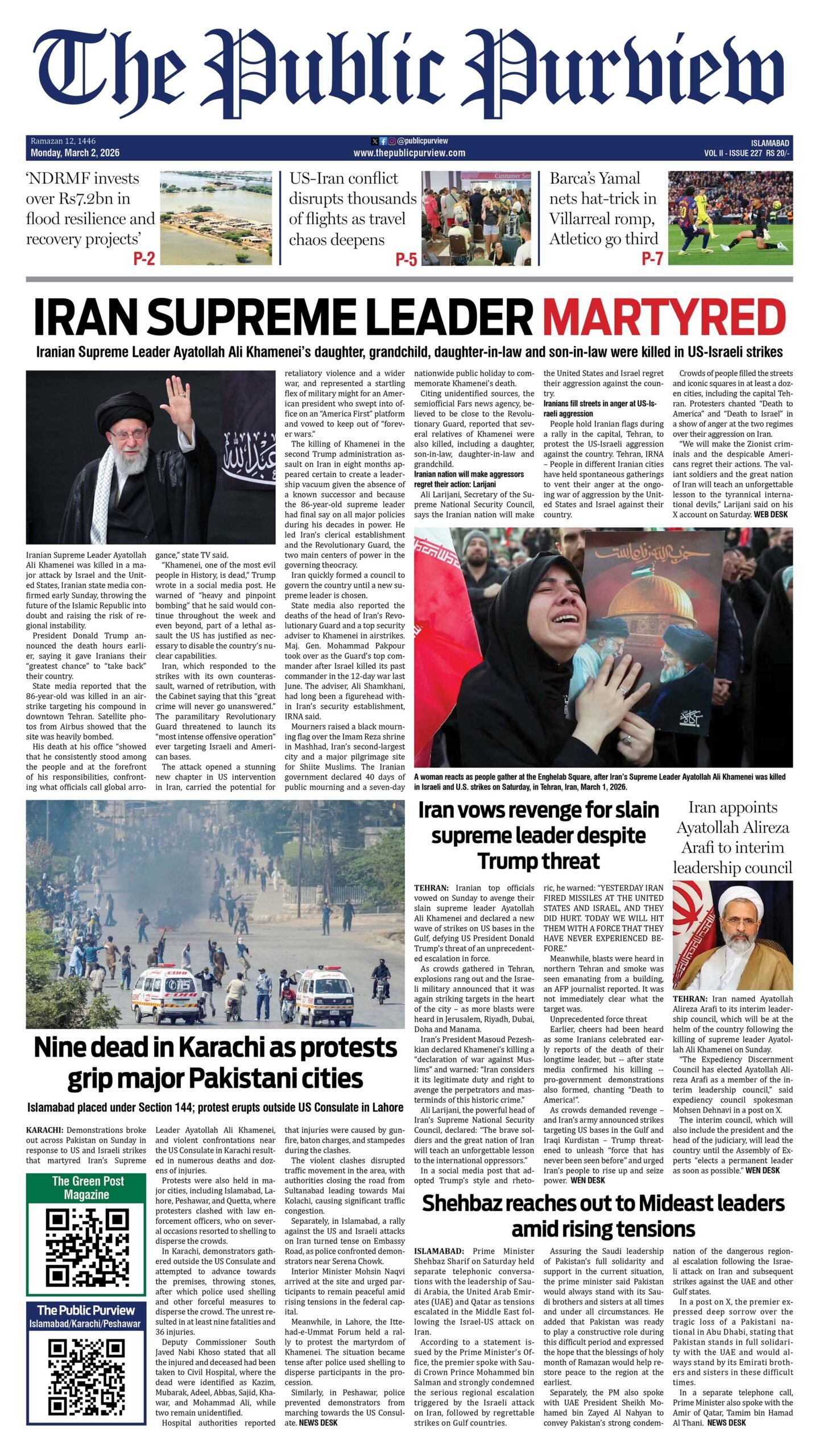by Adnan Arif
Riyadh — Pakistan and Saudi Arabia entered a new era of security cooperation on Tuesday as Prime Minister Muhammad Shehbaz Sharif and Crown Prince Mohammed bin Salman signed the Strategic Mutual Defense Agreement (SMDA) in Riyadh.
The ceremony took place at Al-Yamamah Palace after formal talks between the two leaders. Senior officials from both countries joined the meeting, which covered defense, trade, and regional peace. However, the SMDA stood out as the most significant achievement of the visit.

Under the agreement, any attack on one country will be treated as an attack on both. Moreover, the pact includes closer defense planning, intelligence sharing, and joint training exercises. Officials stressed that the accord reflects the determination of Islamabad and Riyadh to act together against threats.
Analysts argue that the Strategic Mutual Defense Agreement carries far more weight than a symbolic gesture. For decades, Pakistani troops have served in Saudi Arabia, training forces and securing vital sites. Now, history has evolved into a formal security alliance.

For Pakistan, the pact brings strategic assurance as well as potential defense and economic collaboration. At the same time, Saudi Arabia strengthens its security framework in a region where alliances continue to shift. Therefore, the agreement demonstrates not only solidarity but also long-term planning.
Prime Minister Shehbaz Sharif praised the Saudi leadership for taking what he described as a “landmark step.” He also conveyed greetings to King Salman bin Abdulaziz and called Saudi Arabia both a trusted ally and a spiritual partner. In addition, he noted that Riyadh has consistently supported Pakistan, from economic relief packages to energy projects.

Crown Prince Mohammed bin Salman responded with equal warmth. He reaffirmed Saudi Arabia’s commitment to Pakistan’s stability and prosperity. Furthermore, he praised the Pakistani community’s contributions inside the Kingdom and pledged to continue standing shoulder to shoulder with Islamabad.
Observers highlight that the timing of the pact is critical. With tensions rising across the region, both nations have sent a clear message that their security is indivisible. Consequently, the SMDA strengthens their joint voice on peace and stability in the wider Muslim world.
In conclusion, the Strategic Mutual Defense Agreement represents more than a bilateral pact. It marks a pledge of unity, transforming a partnership rooted in history and faith into a binding alliance built on shared goals and mutual trust.







 Today's E-Paper
Today's E-Paper